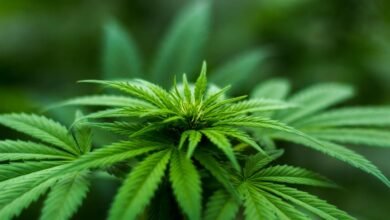Will Cbd Show in Blood Work

The presence of CBD in blood work is a nuanced subject. Typically, standard tests do not detect CBD, focusing instead on THC and its metabolites. However, full-spectrum CBD products may contain trace amounts of THC, which could potentially show up in drug tests. This raises important questions for those using CBD, particularly regarding the implications for employment or legal situations. What should users consider before choosing a CBD product?
Understanding CBD and Its Derivation
Cannabidiol (CBD) is a naturally occurring compound found in the Cannabis sativa plant. It is derived from various CBD sources, including hemp and marijuana, each offering distinct concentrations.
CBD is recognized for its potential benefits, such as alleviating anxiety, reducing inflammation, and promoting relaxation. As interest in CBD grows, understanding its derivation helps individuals make informed choices about its use and potential effects.
The Difference Between CBD and THC
CBD and THC are two prominent compounds found in the cannabis plant, each with distinct properties and effects.
CBD is known for its therapeutic benefits, offering relief from anxiety and inflammation without psychoactive effects.
In contrast, THC is associated with euphoric sensations and altered mental states, often leading to a high.
Understanding these differences is essential for informed choices regarding cannabis use.
How CBD Is Metabolized in the Body
When consumed, cannabidiol undergoes a complex metabolic process within the body.
CBD absorption primarily occurs in the gastrointestinal tract, where it enters the bloodstream.
Once in circulation, it is metabolized by the liver, leading to various metabolites.
Eventually, CBD elimination takes place through urine and feces.
This intricate process affects how long CBD remains detectable in the body.
Impact of CBD on Drug Testing and Blood Work
The metabolic process of cannabidiol can influence drug testing outcomes and blood work results.
While CBD itself is legal in many jurisdictions, its association with THC in full-spectrum products raises concerns during drug testing. Detectable levels of THC can lead to positive results, despite the legality of CBD.
Individuals should be aware of these factors when considering CBD use in relation to drug testing.
Conclusion
In the intricate tapestry of cannabinoids, CBD often remains a shadow, rarely illuminated in standard blood tests. However, like a whisper of THC in a full-spectrum product, it can leave a trace, potentially altering the narrative for those facing drug screenings. Individuals must navigate this landscape with care, choosing their paths wisely to avoid the pitfalls of unexpected results. Ultimately, awareness and informed choices serve as the compass guiding one through the complexities of CBD consumption and drug testing.






